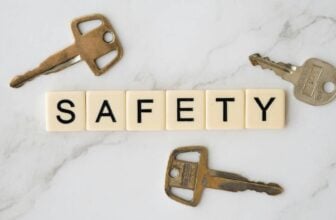Thinking your baby is too young to start learning music? It’s never too early to start playing an instrument! Did you know that there are classes for children from 0 to 3 years old? They playfully introduce the basics and combine various activities to develop kids’ imagination, cognitive, and motor skills, and creativity.
Early classes can benefit your toddler in various ways, from shaping general skills to giving a push toward a lifelong musical journey. Let’s discuss a range of significant benefits granted by learning a musical instrument at a young age.
It brings joy
Music involves much entertainment and fun. Of course, you can’t skip routine exercises, but kids enjoy trying new instruments. With just a little encouragement, they can be persistent enough to develop basic skills. Furthermore, their efforts will be rewarded with the very first song they learn to play. This would be an important achievement to celebrate with the whole family and a great motivation for further exercising. More fun will come as a beginner continues to play and becomes ready to perform little home recitals.
Improved coordination
Music is interconnected with a range of physical skills. In particular, practicing an instrument in early childhood advances motor skills and coordination. When you play, your brain has to manage consistent movement of hands and sometimes feet as well, which promotes overall body control. Therefore, young musicians are more advanced in these skills compared to their peers who don’t play any instrument.
Responsibility, patience, and perseverance
Playing a musical instrument is only partly fun. The largest part, however, involves regular and dedicated practice. Furthermore, you won’t achieve success overnight. A kid will have to train for a certain while to attain significant progress. If you are used to practicing regularly from a young age, you’ll learn how to move steadily and patiently toward your goal. By following everyday exercises, kids learn to fight frustration and stay resistant to occasional failures.
Furthermore, musical learning includes taking care of your instrument and keeping it sleek and functional. Even a simple digital keyboard needs regular cleaning from dust. Such simple maintenance practices teach children responsibility for their instrument and its performance.
Memory training
Learning a musical instrument helps kids develop various kinds of memory, including visual, auditory, and kinesthetic memory. When exercising, they need to remember sheet music, finger positions, cues, and arrangements. This practical training enhances brain function and focus, thereby improving their memory.
Mental health
Early musical lessons strengthen a kid’s character by shaping tenacity, responsibility, and commitment. Children learn how to move toward their goals, step by step, without falling into frustration in case of mistakes or failures.
Furthermore, their practice includes listening to music and responding to it. These processes stimulate emotional diversity and develop empathy. By affecting the emotional part of the brain, music builds the foundation for emotional intelligence.
Apart from this, young musicians often work as a team. They can sing in a choir or play in a school band. Such interactions develop early communication and collaboration skills, introducing teamwork as part of mutual success. Children actively socialize and recognize themselves as team members, which reinforces their determination and overall mental well-being.
Improves active listening skills
When taking music lessons, children need to listen and interpret various types of information. It includes characteristics of musical pieces, such as rhythm, melody, and speed of the music, as well as the teacher’s instructions, basic theory, and how other people are playing. With a variety of aural information, kids must understand and react properly to what they’ve heard. This is perfect training for active listening, which lays the solid foundation for further analytical skills.
Promotes socializing
Playing in a group is engaging and enjoyable. A teenage band with electric guitar, drums, and keyboards, or a team of younger players, with pianos, violins, and flutes, is exciting and engaging for young learners. When exercising together, they practice efficient interaction that helps them achieve the desired results. These early socializing skills facilitate their social integration and help them establish themselves among peers
Increases self-esteem
Continual exercising and learning are full of successes and failures, achievements and mishaps. What helps children move forward is their ability to consider the feedback they receive from teachers, fix mistakes, and never give up. All efforts become justified when children see their first accomplishments. They get rewarded with a sense of fulfillment that raises their self-confidence and self-esteem.
To sum up, it’s a good idea to introduce your toddler to the music world. Listening to music and experimenting with instruments will add diversity and fun, while the whole learning process will benefit them mentally and physically.
Let them choose the instrument they prefer. Visit a music store and show them the options. Shops like Everest Music allow you to try instruments and provide expert advice on which one will be the best fit for your child. At such stores, you can also find affordable options for beginners and attend music lessons.
Therefore, you have numerous reasons and opportunities to start your child’s musical education early. Mastering a musical instrument is a valuable skill that may even determine their future life path.





